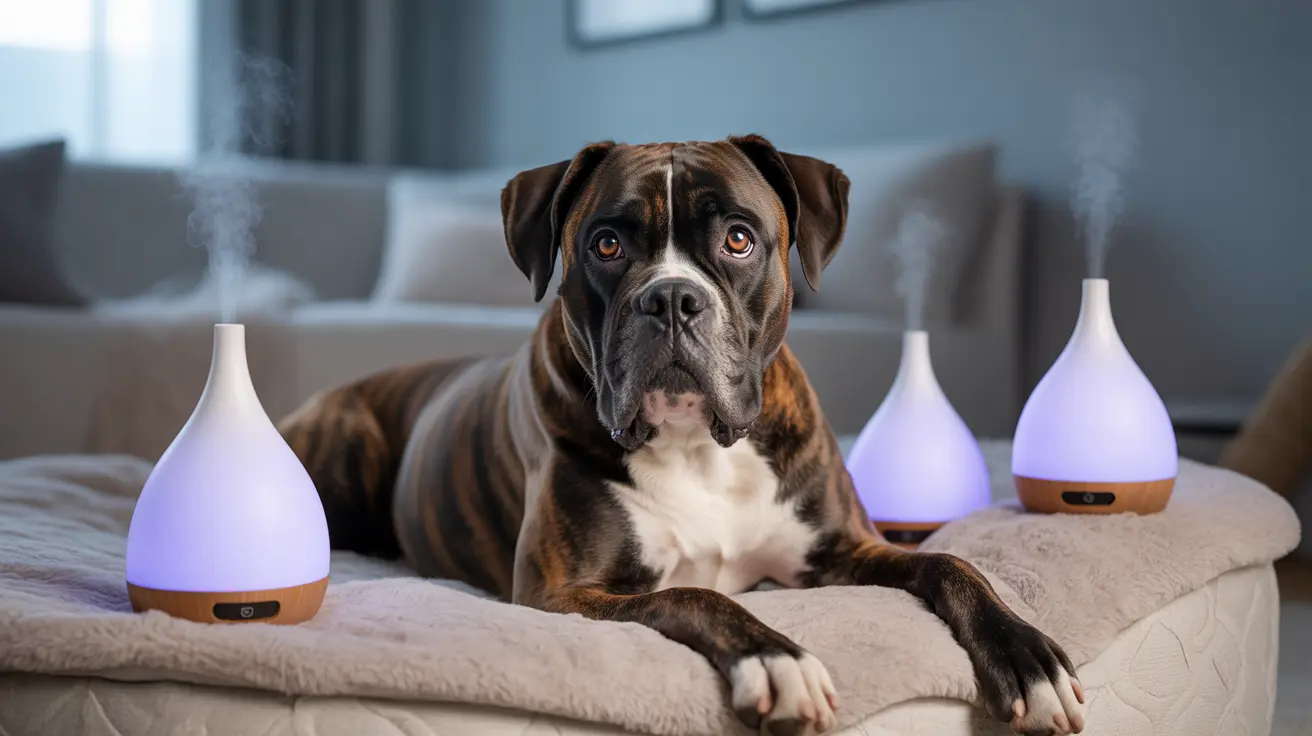Many pet owners wonder about using Benadryl to help calm their anxious dogs, especially during stressful situations like thunderstorms or fireworks. While Benadryl (diphenhydramine) is commonly used for treating allergies in dogs, its effectiveness for anxiety management is limited and not recommended by veterinary professionals.
Understanding the facts about Benadryl's use in dogs is crucial for making informed decisions about your pet's anxiety treatment. Let's explore what veterinary science says about using Benadryl for dog anxiety, along with safer and more effective alternatives.
How Benadryl Works in Dogs
Benadryl primarily functions as an antihistamine, blocking certain chemicals that cause allergic reactions. While it can have mild sedative effects, these are typically inconsistent and not strong enough to effectively manage anxiety in dogs.
Some dogs may even experience the opposite effect, becoming more agitated or hyperactive after taking Benadryl. This unpredictable response makes it an unreliable choice for anxiety management.
Safety Considerations and Proper Dosage
If your veterinarian recommends Benadryl for other conditions, the standard dosage is 2-4 mg per kilogram of body weight, administered 2-3 times daily. However, this dosing is not intended for anxiety treatment.
Important safety considerations include:
- Never use time-release formulations
- Avoid liquid forms containing xylitol or alcohol
- Check with your vet before giving Benadryl to puppies or senior dogs
- Don't use in dogs with certain health conditions like glaucoma or heart disease
Why Benadryl Isn't Recommended for Dog Anxiety
Veterinary experts consistently advise against using Benadryl as an anxiety treatment for several reasons:
- It doesn't address the underlying cause of anxiety
- The sedative effects are unpredictable and often inadequate
- Regular use can lead to decreased effectiveness
- Better, proven alternatives are available
Effective Alternatives for Managing Dog Anxiety
Instead of reaching for Benadryl, consider these veterinary-approved options for managing your dog's anxiety:
Behavioral Solutions
- Professional training and behavior modification
- Desensitization techniques
- Environmental enrichment
- Safe spaces or "anxiety dens"
Veterinary-Approved Products
- Anxiety wraps or compression garments
- Pheromone diffusers and sprays
- Prescription anti-anxiety medications
- Natural supplements recommended by your vet
When to Seek Professional Help
If your dog shows signs of anxiety, schedule a consultation with your veterinarian. They can provide a proper diagnosis and develop a tailored treatment plan that may include:
- Professional behavioral assessment
- Appropriate medication options
- Comprehensive anxiety management strategies
- Regular monitoring and adjustment of treatment
Frequently Asked Questions
Can I give my dog Benadryl for anxiety or fear of fireworks?
No, Benadryl is not recommended for treating anxiety in dogs. While it may cause mild drowsiness, it's not an effective anxiety treatment and could potentially make the situation worse.
What is the safe dosage of Benadryl for dogs, and how should it be administered?
While the standard dosage is 2-4 mg per kilogram of body weight, Benadryl should only be given under veterinary guidance and not for anxiety management.
Does Benadryl effectively treat anxiety in dogs or just cause mild sedation?
Benadryl only causes mild, inconsistent sedation and does not effectively treat anxiety in dogs. It's not recommended as an anxiety treatment by veterinary professionals.
What are the potential side effects and risks of giving Benadryl to my dog?
Side effects can include drowsiness, dry mouth, urinary retention, and in some cases, paradoxical excitement. Some dogs may experience more serious reactions, especially those with certain health conditions.
What are better alternatives to Benadryl for managing my dog's anxiety?
Better alternatives include behavioral training, anxiety wraps, pheromone products, and veterinary-prescribed anti-anxiety medications. Always work with your veterinarian to develop an appropriate treatment plan.
Remember, while it might be tempting to try over-the-counter solutions like Benadryl for your dog's anxiety, the most effective approach is to work with your veterinarian to develop a comprehensive treatment plan tailored to your pet's specific needs.






